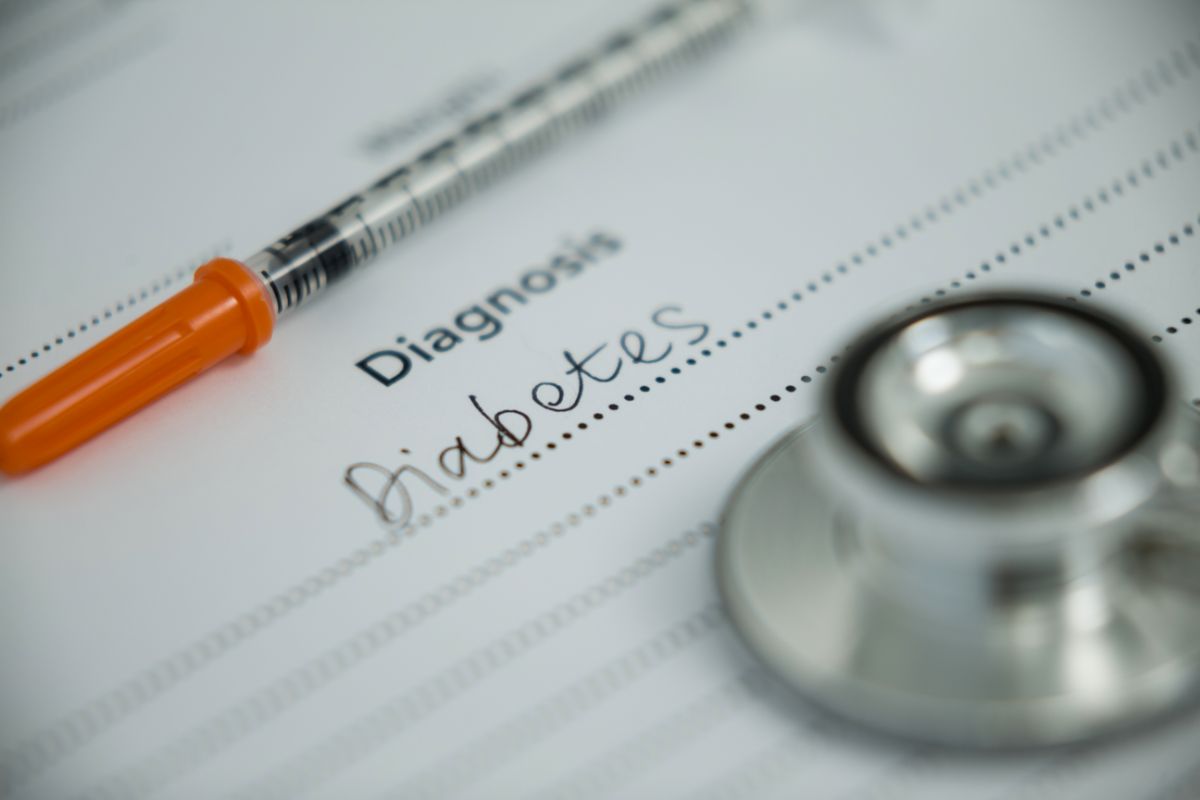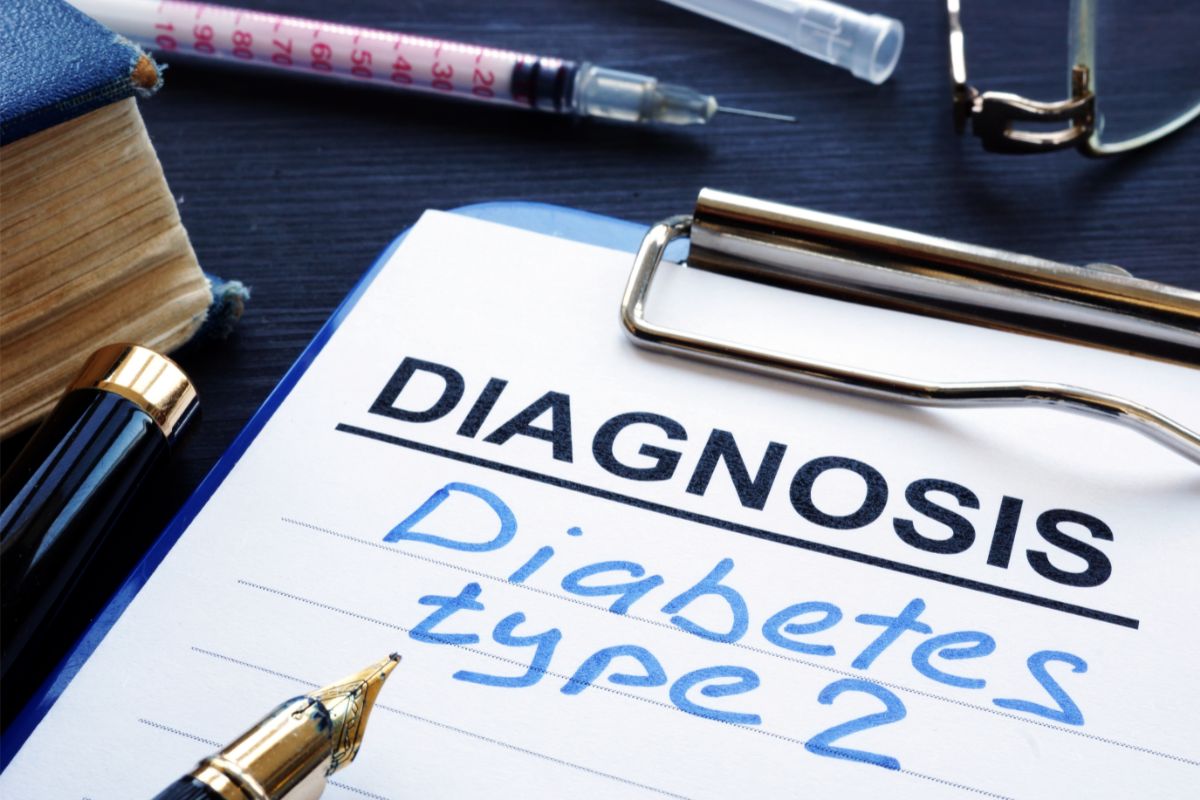Diabetes is a chronic condition that affects millions of people around the world.
If left untreated, it can lead to serious health complications including heart attacks, strokes, kidney failure, blindness, amputations, nerve damage, and even death.

Researchers don’t fully understand why our bodies get insulin resistant. However, there are several factors that could play a role.
For example, belly fat can cause inflammation in the body, increasing the risk of insulin resistance.
Being overweight can also contribute because extra pounds put pressure on organs like the liver and pancreas.
If you’re not active, those organs will struggle to function properly. Additionally, exercise causes changes in your body to help keep blood sugar levels balanced.
Without regular physical activity, your body won’t be able to regulate glucose effectively.
Insulin is the hormone that helps move sugar from the bloodstream into cells, where it is burned for energy.
When there is not enough insulin available to move sugar into cells, blood sugar levels rise causing high blood sugar levels.
People with diabetes must manage their blood sugar levels through daily monitoring and adjustments to their medications. What types of diabetes is there?
Type 1 diabetes is an autoimmune disorder in which the body destroys its own insulin-producing beta cells.
Type 2 diabetes is a metabolic disorder characterized by hyperglycemia, impaired insulin secretion, and relative resistance to insulin action.
There are certain symptoms you should look out for if you suspect you may be diabetic. If you have any of these symptoms, you should get your blood sugar checked.
Speed Of Symptoms
People with type 1 diabetes experience a rapid increase in blood sugar levels. Without treatment, this condition leads to ketoacidosis.
Ketone bodies are produced in the liver and kidneys when there isn’t enough insulin available to transport glucose into the cell.
These ketones accumulate in the blood and eventually cause acidosis.
People with type 1 diabetes may become dehydrated due to low blood volume caused by dehydration.
Dehydration causes thirst, urination, and increased heart rate, which can lead to fatigue and lightheadedness.
When ketones begin to accumulate in the blood, they can cause nausea, abdominal pain, diarrhea, and vomiting.
People who suspect they might have type 1 diabetes should call their doctor right away.
If you have extreme symptoms your blood sugar may be very high, and you need to get to the hospital right away.
Symptoms of DKA include feeling tired, thirsty, weak, confused, nauseous, vomiting, stomach pain, rapid breathing, cold hands and feet, and passing out.
People with type 2 diabetes often experience similar symptoms.
The following symptoms may indicate that your blood sugar level is high:
Getting Up At Night To Urinate
The average person goes to the bathroom 4-7 times in 24 hours, while someone with diabetes may go 10-20 times.
Why? Normally, the body reabsorbs the glucose as it passes through the kidney. But when diabetes pushes the blood sugar up, the kidneys may not be able to bring everything back in.
This causes extra urine production. And because you’re drinking more water, you’ll also pee out more. As a result, you’ll feel thirstier and will need to go more often.
Sores That Don’t Heal Quickly
High blood sugar levels cause damage to nerves, which leads to pain and numbness in your feet or legs.
Over time, high blood sugar also causes slow healing of wounds. Your skin becomes less sensitive to heat and cold, making you more likely to burn yourself.
You may feel lightheaded, dizzy, tired, or weak. These symptoms are indicative of hypoglycemia.

Unexplained Weight Loss
You might see might see unplanned weight loss if your body can’t get enough energy from your food.
If your body starts using muscle and fat for energy first, it will burn them both up quickly. Your body may resort to burning fat because there isn’t enough food to give you energy.
This can cause nausea and vomiting. Diabetic ketoacidosis is a potentially fatal complication of diabetes that occurs when your body produces large amounts of ketone bodies.
Other symptoms include:
- Excessive thirst
- Excessive hunger
- Blurred vision.
- Hands or feet feel cold or numb.
- Feeling tired.
- Dry skin.
- More infections than normal.
Diabetes Tests
Diabetes is diagnosed using blood tests called glycosylated hemoglobin (HbA1c), fasting plasma glucose (FPg) or random plasma glucose (RPG).
These tests measure levels of glucose in the blood. Blood samples are taken after an overnight fast, when blood sugar levels tend to be at their lowest.
HbA1c is also measured during this time. HbA1C measures average blood glucose levels over several months.
People with type 2 diabetes usually have both high blood sugar and insulin resistance.
They need to monitor their blood sugar levels closely and adjust them with medications.
The A~1c test measures your average blood sugar level over the last three months.
Your doctor may also check other indicators like your weight, cholesterol, and triglycerides. If you have anemia, you should talk with your doctor about getting tested.
Anemia affects your red blood cells, which carry oxygen through your body. When you have anemia, your blood doesn’t get enough oxygen.
People with anemia often feel tired and weak and can complicate other issues such as diabetes.
A1C testing can be performed at any time during the course of treatment. If you’re not sure what kind of A1C test should be ordered, ask your health care professional.
He or she will explain the benefits of each test and give you advice about when to get tested.
For example, if you’ve had a recent illness, your A1C level could be affected. You’ll probably receive a test with a longer timeframe, like two weeks after.
In Summary
A diagnosis of diebetes can be scary. But there are many treatments available to manage it. If you suspect diabetes then it’s crucial you adjust your diet and make lifestyle changes.
With a psositive attitude and the support of a good doctor you can live with diabetes and and manage it successfully.
- Understanding Male Reproductive Health: A Complete Guide - February 2, 2025
- Simple Healthy Skin Habits for Radiant Skin - December 6, 2024
- Unlocking the Connection Between Nutrition and Mental Health - December 3, 2024








